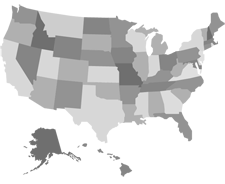Rethink Your Attitude Towards Living With a Budget
Ask people to define living on a budget and be prepared for a gloomy description of surviving on next to nothing- bread and water for nourishment, only leaving the house or apartment to go to work, never going to a movie or concert, no dining out. While this may be an over exaggeration, many people do equate living on a budget with about as much enthusiasm as starting a new diet!The similarities between budgeting and dieting are really quite striking. Both endeavors conjure up images of deprivation and just the right amount of misery. And in both instances, attitude plays a big role in whether or not you will be successful. It doesn't take a rocket scientist to figure out that if someone feels like they are completely doing without (whether it's food or entertainment) they are probably setting themselves up to fail.
So why don't we start with the actual word "budget"? So many people associate budgeting with negative images that maybe a better description would be "spending plan". Who wouldn't want to have a good spending plan in place?
To be honest, the gloomy picture painted above could better describe your life without a budget- living from paycheck to paycheck, having no savings or emergency fund, constantly worrying about paying the bills or what would happen if you lost your job.
If you've tried to live on a budget in the past and just couldn't seem to make it work, welcome to the club! You have lots of company. But don't give up! If your finances are stretched to the breaking point and you find it next to impossible to stick to a budget, an attitude adjustment may be all that's standing between financial desperation and budgeting success.
Here are some common problems that many hopeful budgeters face. By recognizing and knowing how to overcome these stumbling blocks, you too can become a successful budgeter.
Common Roadblocks to Successful Budgeting
- Having the wrong impression. People tend to think of a budget as a type of straightjacket. But in reality the opposite is true. A workable, realistic budget allows you to not only track your spending, but control it. Rather than being restrictive, a budget puts you in charge of your finances rather than the other way around. Financial independence is nearly impossible to achieve without a budget. You should know where your hard-earned money is going. Adjust your thinking to see the positive aspects of a budget!
- Making it complicated. One of the most important factors to being a successful budgeter is to keep it simple. Yes, it does take time and effort to formulate and maintain a budget. But if you've never done it before, don't expect to become a proficient money-manager overnight. You may have a lot of old spending habits you need to "undo". First calculate your income, then your expenses, and then see where you can make cuts. Take it one step at a time.
- Tailoring your budget after someone else's plan. Budgets are personal and what works for one individual may not work for you. Maybe you like to keep receipts and write everything down. Perhaps you want to set up your financial spreadsheet using computer software. Whatever appeals to you (and you will actually use) is the right choice. If one method doesn't work after awhile, find another one that does.
- Making your budget too restrictive. You should be commended for wanting to get a tight rein on your spending. But if you come up with a budget that isn't flexible, it's probably going to break at some point. Circumstances change- food and gas prices constantly fluctuate, your rent may increase, or your income may go down. If you're working with a bare-bones budget, consider ways to bring in more money to give you the breathing room you need.
- Having no clearly defined priorities. Are you finding it difficult to get (or stay) motivated? Everyone needs a goal. Set one for yourself and use your budget to reach it! Budgeting just to budget can be monotonous. Keep your eyes on the prize- whether it's a dream vacation, paying off your credit cards, or building your savings.
- Lacking an emergency fund. The first priority when setting up your budget should be to start saving for financial emergencies. Unexpected money needs always seem to happen at the worst possible time and if you don't have a back-up plan to deal with them, your budget is going to take a hit. Without a cash reserve set aside for just this purpose, you will be forced to take on new, additional debt to handle the situation.
- Setting unrealistic targets. Here is a simple guideline to start the budget process: 30% of your take home pay for rent or mortgage, 15% for food, 10% for utilities, 10% for debt repayment, 10% for transportation, 5% for entertainment, 5% for clothing, and 5% for insurance and other expenses. The remaining 10% can be used for special purchases or savings. Your actual percentages may differ. Track your spending for a month and see where your money is actually going. Then you can make the necessary adjustments.
- Giving up too soon and too easily. Remember that your budget is fluid. Financial situations change. One month may seem perfect and then the next month may turn out to be a complete disaster. Don't be discouraged by setbacks because mistakes do happen. Learn from them and stay positive. Always keep your financial goals in mind and stay focused.
Knowing how to create a budget (and successfully sticking to it) can seem like an overwhelming task if you've never done it before. But having a realistic budget in place can mean the difference between struggling financially and enjoying financial peace of mind. Take a fresh look at budgeting and let it work for you!
State Guides
- Alabama
- Alaska
- Arizona
- Arkansas
- California
- Colorado
- Connecticut
- Delaware
- District of Columbia
- Florida
- Georgia
- Hawaii
- Idaho
- Illinois
- Indiana
- Iowa
- Kansas
- Kentucky
- Louisiana
- Maine
- Maryland
- Massachusetts
- Michigan
- Minnesota
- Mississippi
- Missouri
- Montana
- Nebraska
- Nevada
- New Hampshire
- New Jersey
- New Mexico
- New York
- North Carolina
- North Dakota
- Ohio
- Oklahoma
- Oregon
- Pennsylvania
- Rhode Island
- South Carolina
- South Dakota
- Tennessee
- Texas
- Utah
- Vermont
- Virginia
- Washington
- West Virginia
- Wisconsin
- Wyoming



